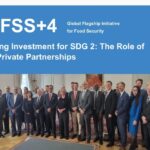UNFSS+4 : Global Flagship Initiative on Food Security Takes Center Stage in Mobilizing Investment for SDGs 2-Advanced the Role of Public -Private Partnerships.
In a landmark gathering at the United Nations Food Systems Summit +4 (UNFSS+4) Stocktaking, the Global Flagship Initiative on Food Security emerged as a global beacon of hope in the effort to addressing food security, global hunger and malnutrition. Convened in Addis Ababa, Ethiopia, a city long regarded as the cradle of African diplomacy and unity, the event brought together over 3,000 global stakeholders — from governments Multilateral Partners institutions and civil society to youth, indigenous groups, and business leaders — all unified by one goal: transforming food systems to meet Sustainable Development Goal 2 — Zero Hunger.
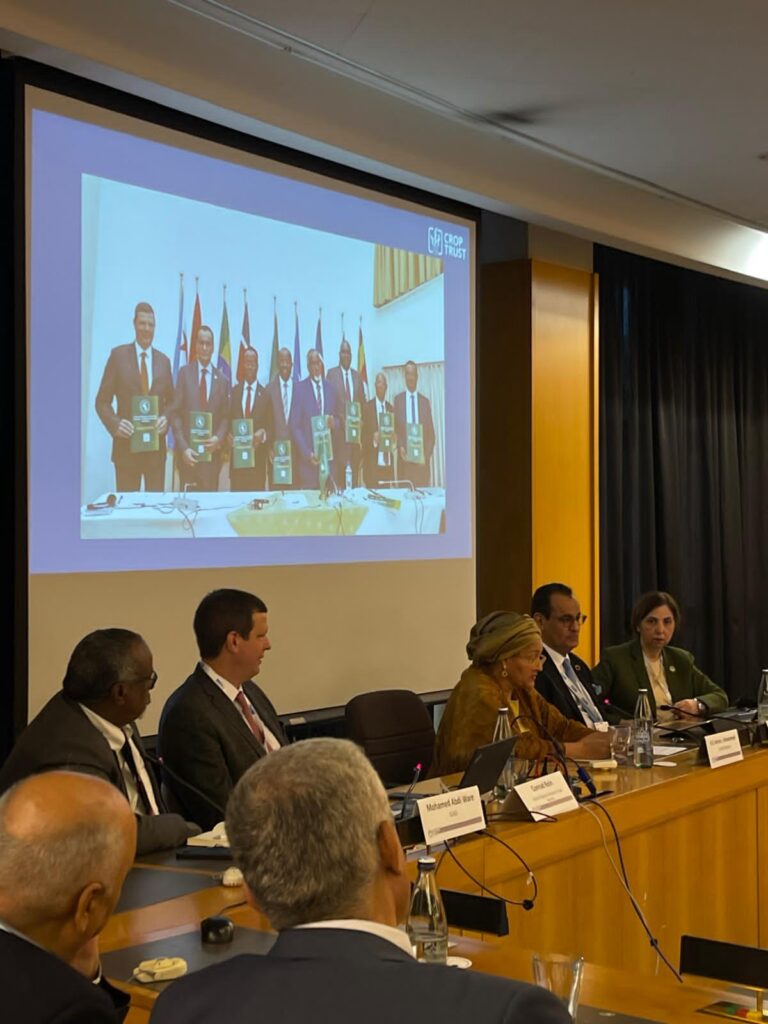
Dr. Conrad Rein, Secretary of the Global Flagship Initiative on Food Security, delivered a keynote presentation that set the tone for a highly focused and action-oriented session on mobilizing investments through public-private partnerships. He described the initiative as a concrete, collaborative, and impact-driven model designed to address the root causes of food and nutritional insecurity, especially in dryland regions across the IGAD states and the Sahel.
“The Flagship is not just a development blueprint,” Dr. Rein emphasized. “It is an agile, scalable mechanism connecting science with policy, finance with local wisdom, and governments with communities on the ground. We are building a bridge between ambition and action.”
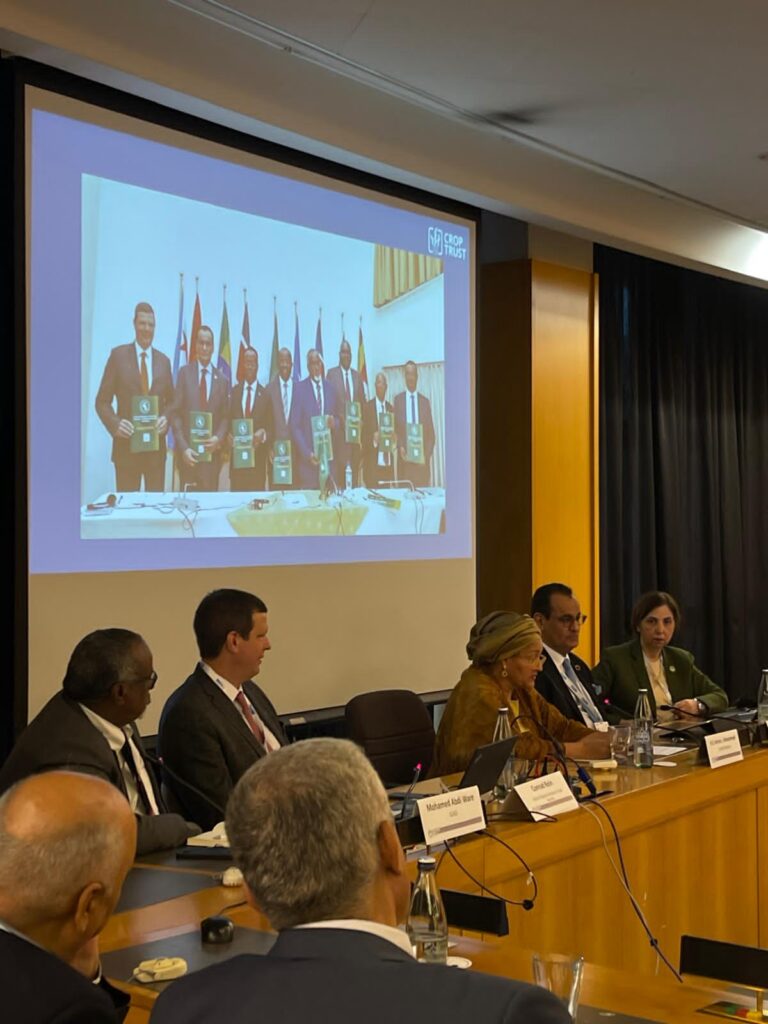
With over 30 strategic partners already on board, including AGFUND, the Crop Trust, and the Arab Coordination Group, the Flagship aims to channel resources where they are needed most — to smallholder farmers, women producers, youth entrepreneurs, and fragile ecosystems. Its operational model rests on three core pillars: broad collaboration, mobilizing the private sector, and delivering measurable impact with agility.
A flagship example was the initiative’s gum arabic production model in Sudan, where 80% of the world’s supply originates. The Flagship plans to scale this model across up to 14 countries, leveraging resilient supply chains, increasing farmers’ income by up to 75%, and paying them directly through digital systems — thus ensuring transparency and equity in the value chain
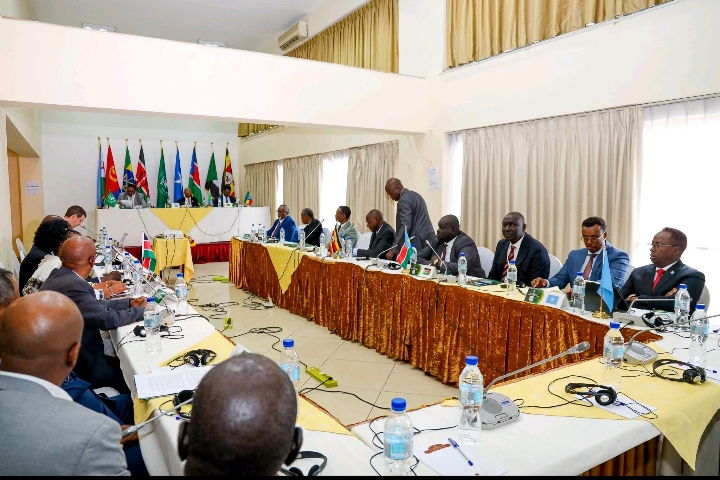
Upcoming global engagement milestones for the Flagship include the Science Summit at the UN General Assembly in September, World Food Day in Washington, D.C., the G20 Summit in Johannesburg, and the EU-Africa Summit in Luanda. These events are expected to deepen member engagement, attract investors, and spotlight stories of impact, innovation, and resilience.
The urgency of the moment was further underscored by remarks from the UN Deputy Secretary-General at the AGFUND side event titled “Mobilizing Investment for SDG 2: The Role of Public-Private Partnerships.” She painted a stark picture of rising global hunger — with over 800 million food-insecure people, and 2.6 billion unable to afford a healthy diet in 2024.
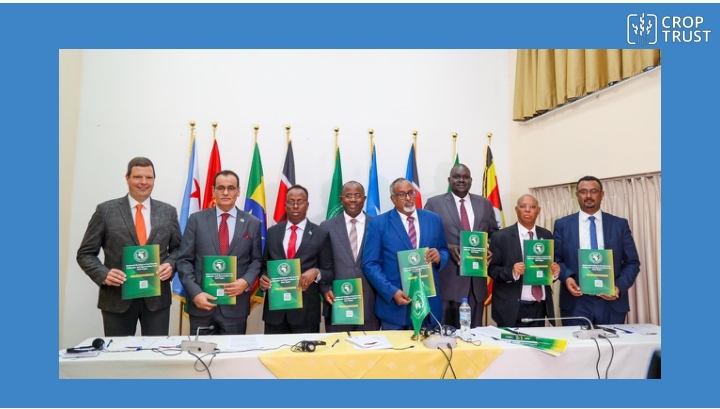
“This is not just a development crisis; it is a moral one,” she said. “The Flagship Initiative offers a credible, well-structured path forward — one that prioritizes justice, inclusion, and sustainability.”
The Deputy Secretary-General also stressed the growing financing gap, estimated at over $300 billion annually for food systems transformation. Least Developed Countries and Small Island Developing States continue to bear the brunt of climate shocks and food insecurity, yet receive a disproportionately small share of climate finance. Unlocking capital through ESG bonds, climate-aligned funds, and innovative blended finance models is now a global imperative.
At the core of the Flagship’s philosophy is local empowerment. The initiative places a strong focus on enhancing women’s access to land, finance, and decision-making power, while recognizing the vital contributions of indigenous knowledge and youth-led innovation. Digital inclusion is also a key priority — especially for farmers in rural communities — to ensure equal participation in global agri-value chains.
The 2025 State of Food Security and Nutrition in the World (SOFI) report, released during the Summit, confirmed that despite progress in some areas, hunger and malnutrition persist at unacceptable levels. Projections show that by 2030, 512 million people will still face hunger — with nearly 60% in Africa. The report calls for urgent action to reverse this trajectory, and the Flagship Initiative is now seen as a central mechanism to help do so.
Participants also celebrated the launch of several complementary efforts — including the Food Systems Accelerator, the 3FS Framework co-developed by IFAD and the World Bank, and the Youth Declaration on Climate Justice and Intergenerational Collaboration — all reinforcing the integrated approach promoted by the Flagship.
Looking ahead, stakeholders committed to scaling National Food System Pathways, enhancing domestic resource mobilization, and leveraging science and technology responsibly, including AI and digital public infrastructure, to support resilient and equitable systems.
“The world cannot afford to delay,” Dr. Rein concluded. “Food systems are more than just agriculture — they are about dignity, justice, and the shared future of our planet. Through partnership, purpose, and persistence, we are sowing the seeds of transformation.”
As the countdown to 2030 accelerates, Addis Ababa may well be remembered as the city where the global community redrew the roadmap to Zero Hunger — and where a bold initiative turned aspiration into action.



